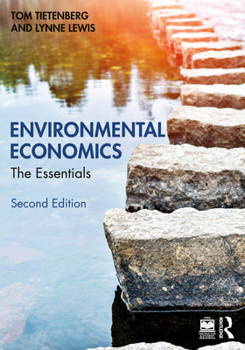Environmental Economics: The Essentials
Environmental Economics: The Essentials offers a policy-oriented approach to the increasingly influential field of environmental economics that is based on a solid foundation of economic theory and empirical research. Students will not only leave the course with a firm understanding of environmental economics, but they will also be exposed to a number of case studies showing how underlying economic principles provided the foundation for specific environmental and resource policies. This key text highlights what insights can be derived from the actual experience.
Key features include:
Extensive coverage of the major issues, including climate change, air and water pollution, sustainable development, and environmental justice Introductions to the theory and method of environmental economics, including externalities, experimental and behavioral economics, benefit-cost analysis, and methods for valuing the services provided by the environment Boxed Examples and Debates throughout the text, which highlight global cases and major talking pointsThis second edition provides updated data, new studies, and more international examples. There is a considerable amount of new material, with a deeper focus on climate change. The text is fully supported with end-of-chapter summaries, discussion questions, and self-test exercises in the book, as well as a suite of supplementary digital resources, including multiple-choice questions, simulations, references, slides, and an instructor's manual. It is adapted from the 12th edition of the best-selling Environmental and Natural Resource Economics textbook by the same authors.





